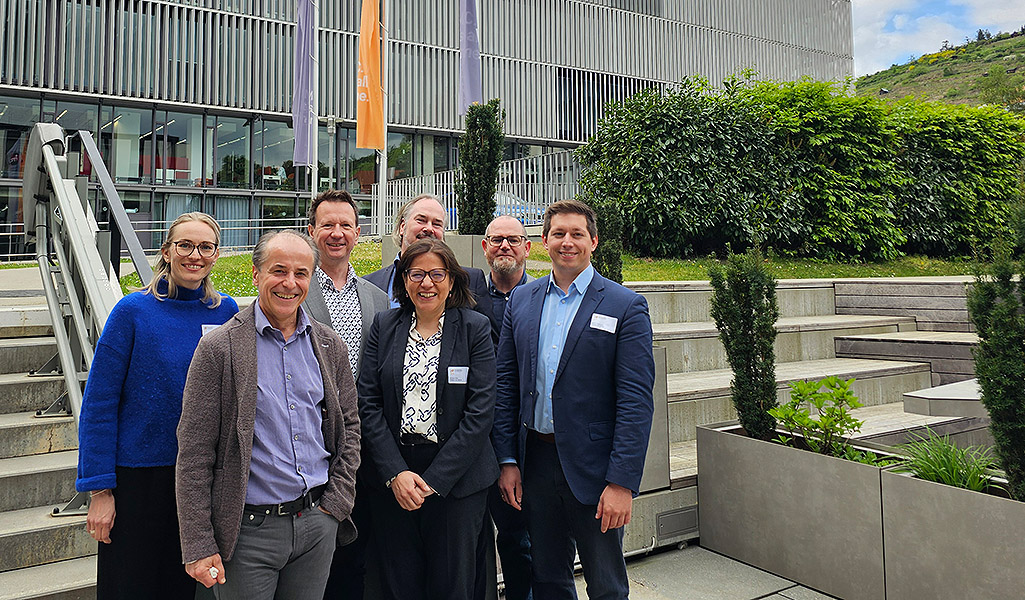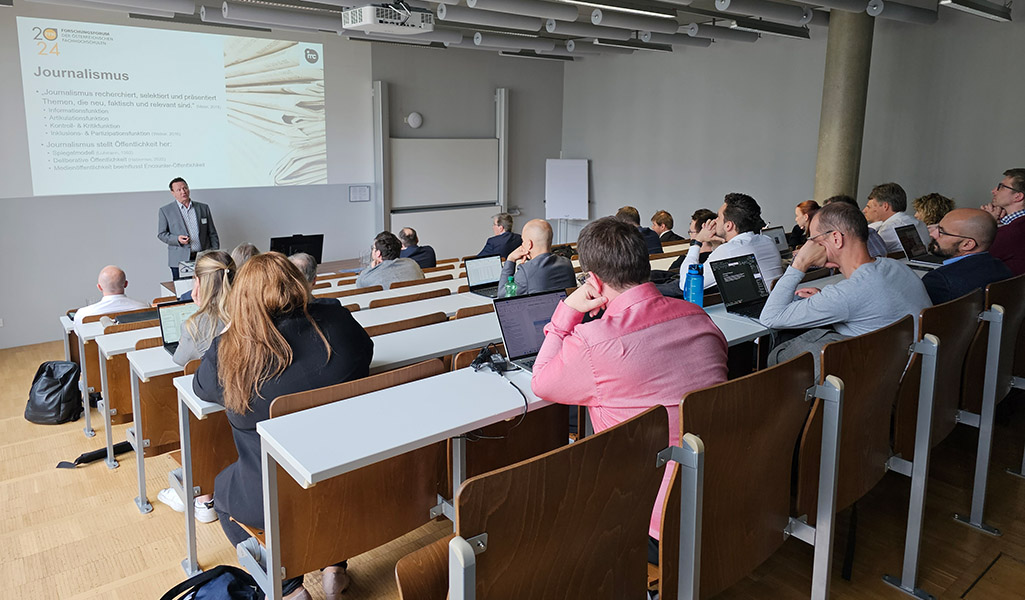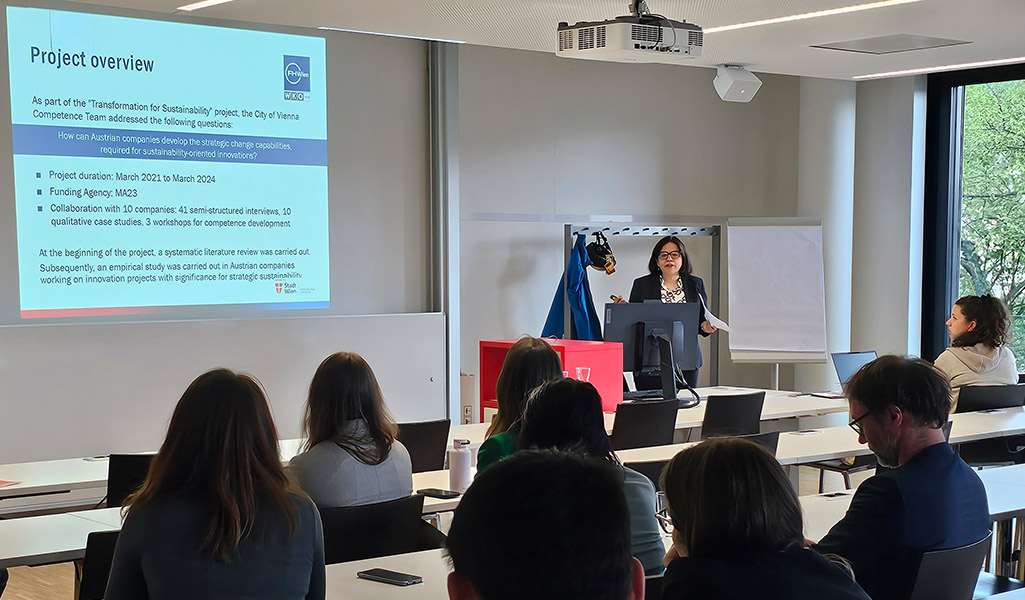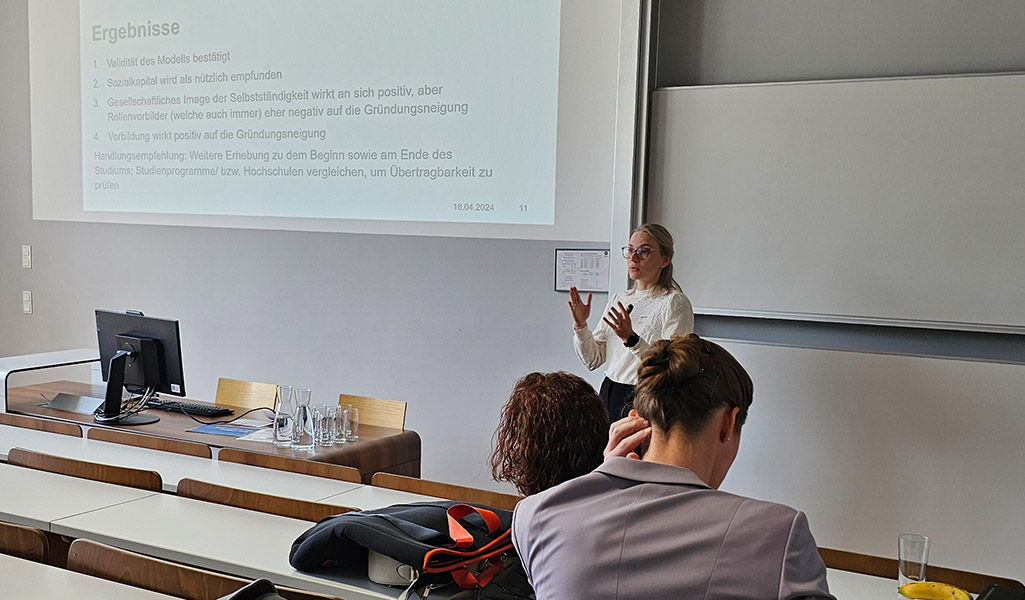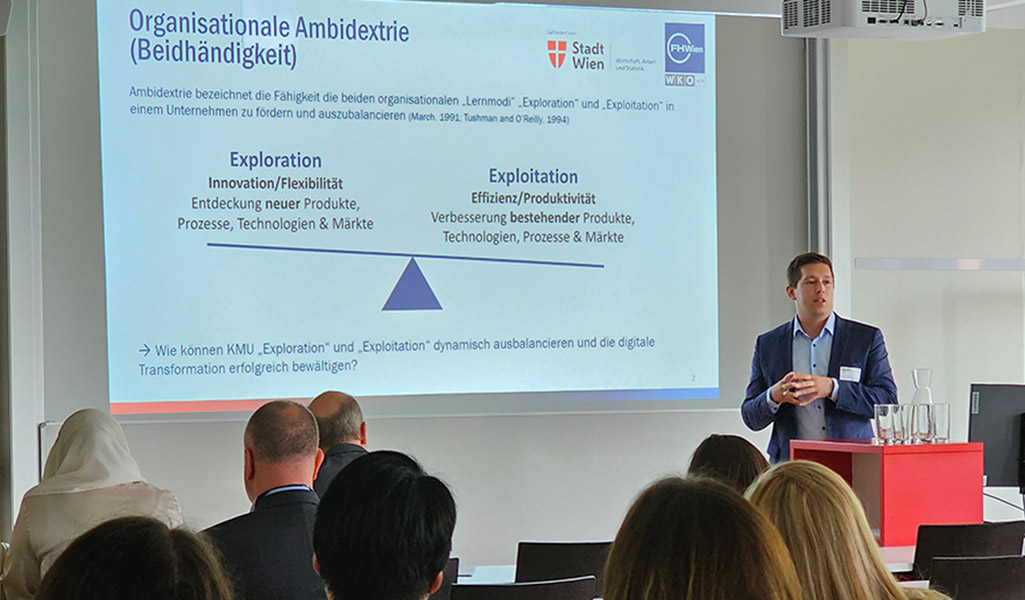In line with the conference motto “Let’s apply science!”, several researchers from FHWien der WKW presented current findings on the application of artificial intelligence, sustainable innovations and digital transformations as well as business founders at the FH Research Forum 2024 in April.
The 17th Research Forum of the Austrian Universities of Applied Sciences took place at IMC Krems on April 17 and 18, 2024 as an annual fixture and UAS meeting place. The focus of the current conference was the application orientation of research at universities of applied sciences.
“Applied artificial intelligence” in journalism
One focus of the research forum was on developments and projects in the field of artificial intelligence (AI). As part of the “Let’s apply Artificial Intelligence!” track, Andreas Hess from the Department of Communication presented the latest findings on “Application areas of AI – artificial intelligence in journalism”. The results show that the industry is still reluctant to use AI, but has a fundamentally positive attitude towards it. AI systems are primarily perceived as helpful support for routine tasks. The use of purely generative AI without human control is not desirable from a professional and democratic perspective. In addition, personnel savings in favor of AI systems are perceived as a realistic risk.
“Applied sustainability” in innovation projects
Economic issues were another focus of the FFH Forum 2024 in the “Let’s apply economics!” panels. On the first day of the conference, Daniela Ortiz from the Institute for Business Ethics and Sustainable Strategy (IBES) presented “Productive Dialogues as building blocks of Dynamic Capability for Sustainability” as the results of the recently completed research project “TransformS“. The study analyzed initiatives for more sustainability in large and established companies (e.g. VERBUND, Neuman Aluminium, Lenzing, Post AG). It turns out that sustainability-oriented innovation projects are very often initiated through dialog in multi-stakeholder environments. Subsequently, dialogues within the supply chain and within the company lead to the implementation of the initiated projects.
“Applied research” for entrepreneurship
On the second day of the conference, Maija Worek from the Management & Entrepreneurship study program showed “Which factors influence the start-up propensity of UAS graduates”. The presented results show that classic founding characteristics such as willingness to take risks, motivation to perform and internal control as well as initial seed capital have a significant influence on the implementation of a business launch. The research team at FHWien der WKW was surprised to find that although social capital has a positive influence on the propensity to start a business, at the same time it has a negative influence on the realization of the founding.
“Applied transformation” in digitalization
At the same time and in the “Let’s apply economics!” track, Patrick Rupprecht from the Institute for Digital Transformation & Strategy (IDS) spoke about how Austrian small and medium-sized enterprises (SMEs) can master the digital transformation with the “Organizational anchoring of ambidexterity for innovation success”. Current results of a practical study as part of the research project “Organizational Ambidexterity in SMEs“ give Austrian companies a good report card when it comes to balancing efficiency and innovation. The results also show that established digital applications such as social media and cloud computing have also arrived in domestic SMEs. However, there is still some catching up to do when it comes to more complex digital technologies or digital corporate strategies. To close this gap, Patrick Rupprecht presented guidelines for anchoring digital skills and digitalization strategies as well as for “ambidextrous” management and development.
The extensive lecture program was accompanied by numerous panel discussions on the current situation of universities of applied sciences in Austria and the key topics of the conference. Between the discussions and presentations, there was the opportunity to exchange experiences with colleagues from other universities of applied sciences. The next Research Forum of Austrian Universities of Applied Sciences will take place on May 7 and 8, 2025 at FH Campus Wien.
